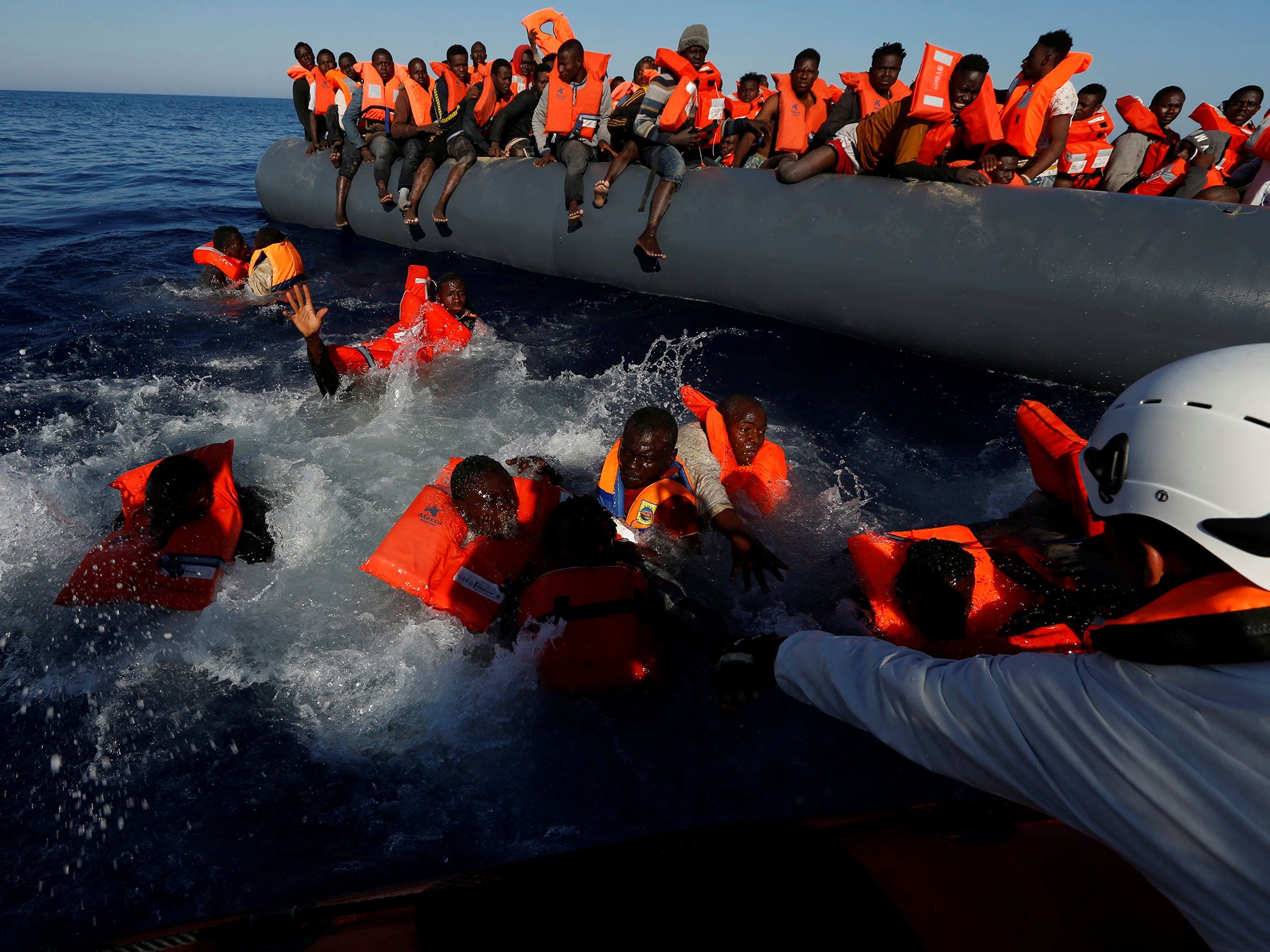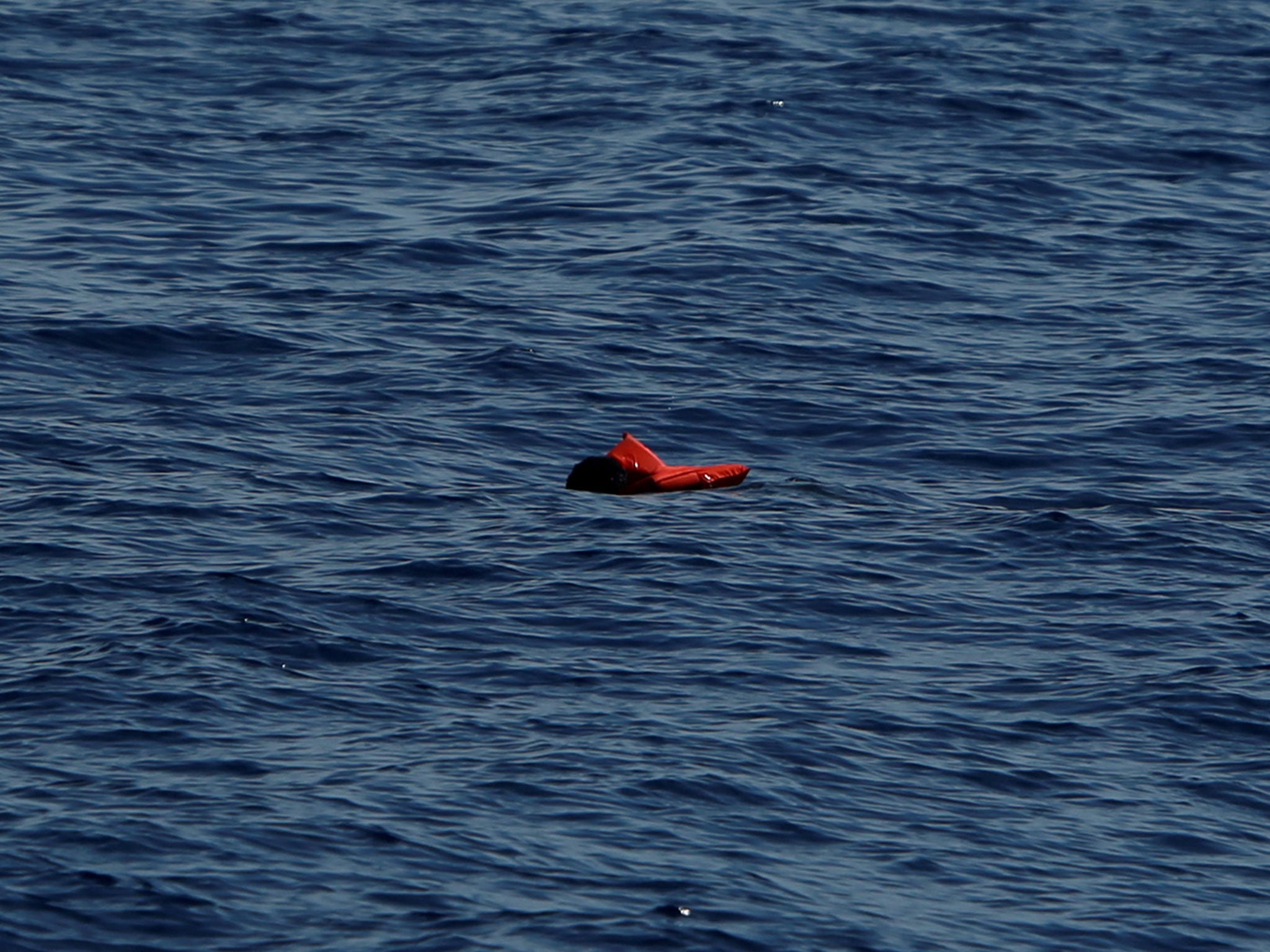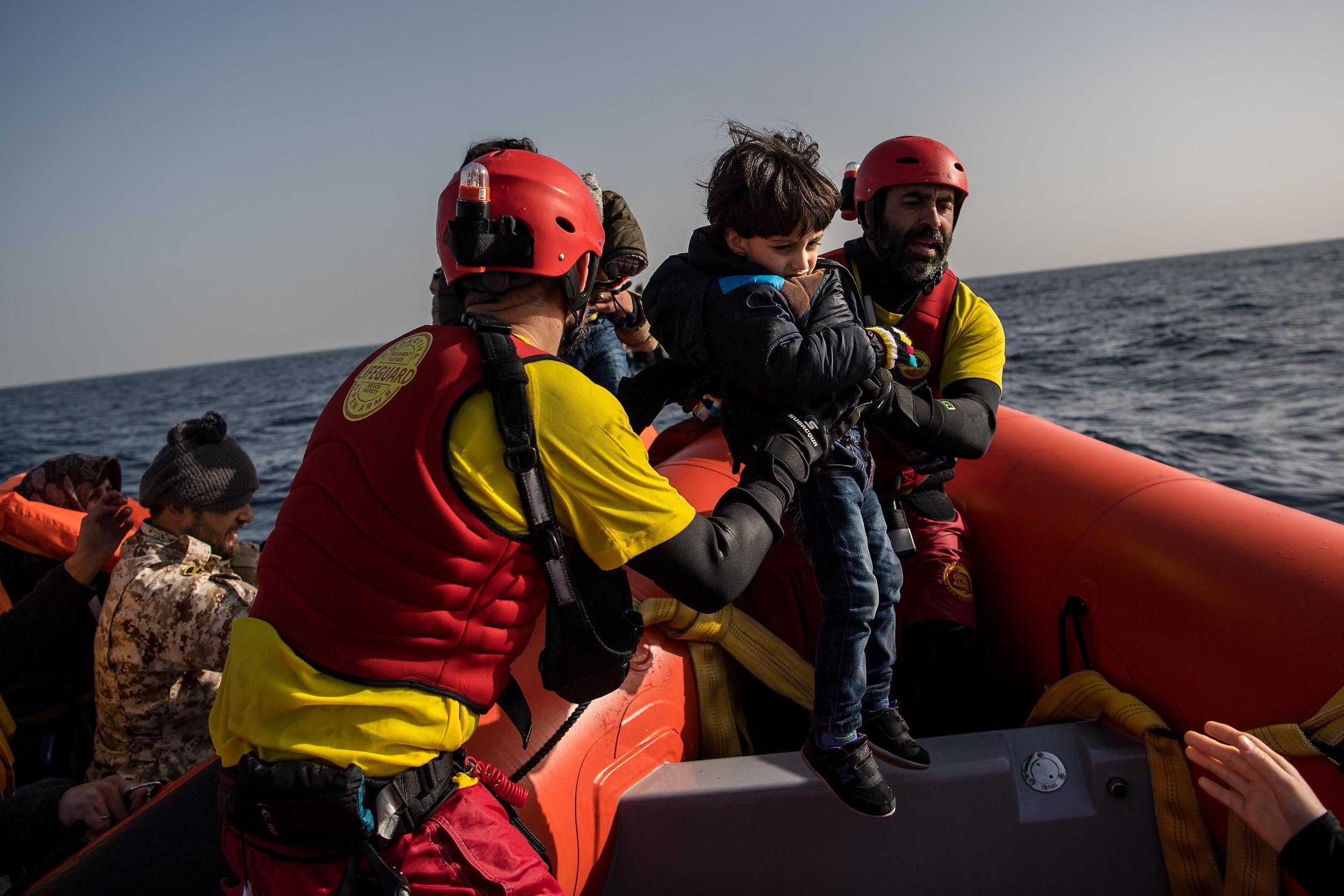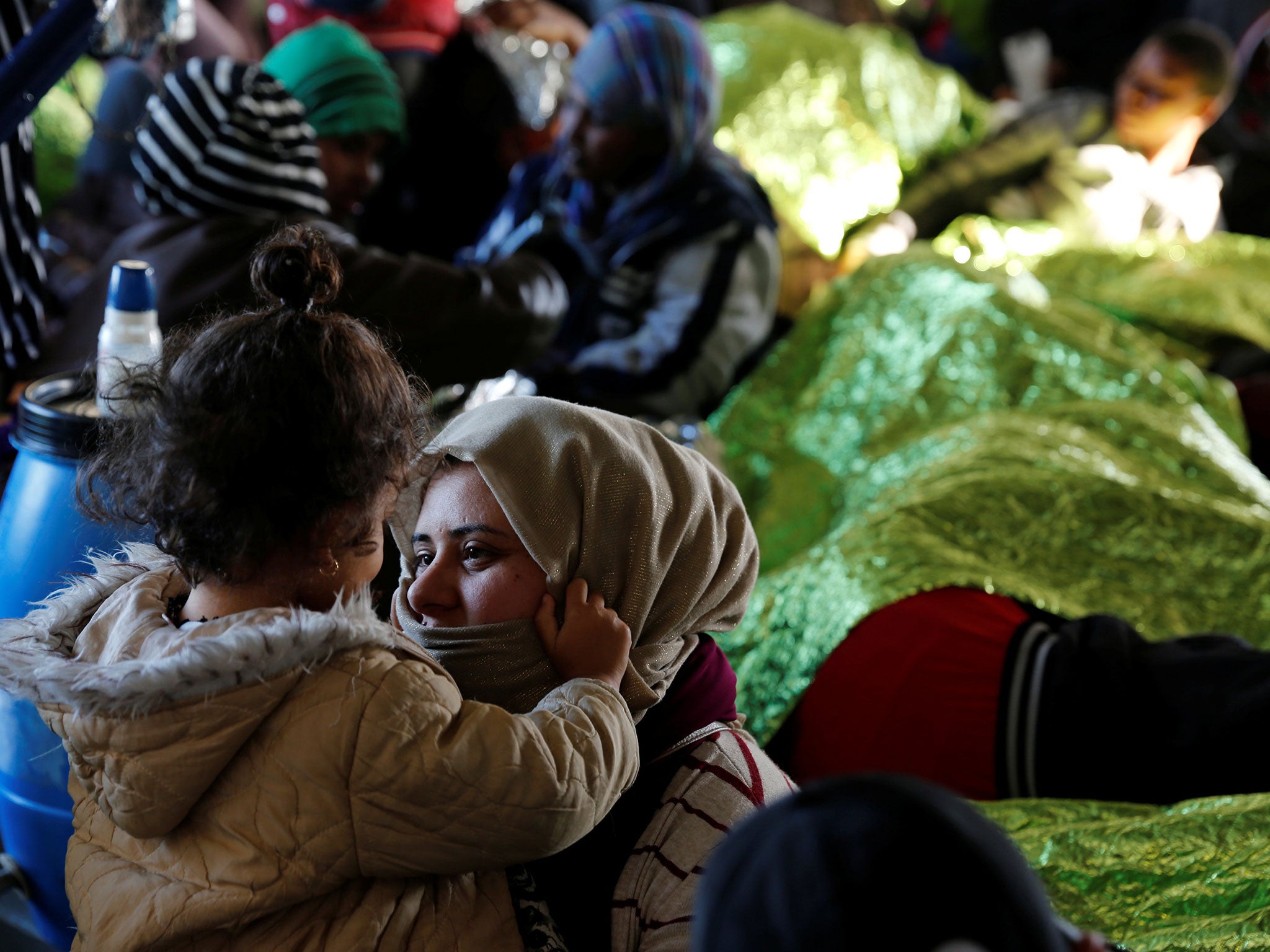Refugee death toll passes 1,000 in record 2017 as charities attacked for conducting Mediterranean rescues
‘NGOs are being blamed for our presence, when authorities should be blamed for their absence’

Your support helps us to tell the story
From reproductive rights to climate change to Big Tech, The Independent is on the ground when the story is developing. Whether it's investigating the financials of Elon Musk's pro-Trump PAC or producing our latest documentary, 'The A Word', which shines a light on the American women fighting for reproductive rights, we know how important it is to parse out the facts from the messaging.
At such a critical moment in US history, we need reporters on the ground. Your donation allows us to keep sending journalists to speak to both sides of the story.
The Independent is trusted by Americans across the entire political spectrum. And unlike many other quality news outlets, we choose not to lock Americans out of our reporting and analysis with paywalls. We believe quality journalism should be available to everyone, paid for by those who can afford it.
Your support makes all the difference.More than 1,000 refugees have drowned in the Mediterranean Sea so far this year, as charities battling to stem the record number of deaths increasingly come under attack.
The UN Refugee Agency (UNHCR) has recorded at least 1,073 people dead or missing on the treacherous passage between Libya and Italy – a grim benchmark that was not reached until the end of May last year.
At least 150 are children, Unicef said, while warning that the real figure is likely to be far higher because unaccompanied minors’ deaths frequently go unreported.
Such is the danger of death that asylum seekers embarking on flimsy dinghies have been known to write phone numbers in marker pen on life jackets, so loved ones can be notified if their body is recovered.
More than 8,300 migrants were rescued over the Easter weekend alone, with some of those taken to safety telling aid workers around 100 of their fellow passengers had died during the voyage.
Many dinghies have capsized, seeing up to 170 people crammed on board drown, while others have been found dead in boats after being suffocated, dying of hypothermia or starving while drifting at sea.
Smugglers are pushing more and more boats into the Mediterranean as the weather improves and amid rumours of a crackdown by the Libyan coastguard, which is being bolstered by Italian funding and equipment.
The unprecedented crisis has sparked intervention by several non-governmental organisations (NGOs), who have launched their own rescue ships equipped with medical staff and supplies to bolster efforts by the EU’s Operation Sophia.
Initially welcomed by European authorities, their growing role in the Mediterranean has been met with increasing suspicion by right-wing politicians and groups now accusing them of “colluding” with smugglers.
Médecins Sans Frontières (MSF), whose staff work on two rescue ships, dismissed the claims as “baseless”.
Stefano Argenziano, the group’s operations manager for migration, said it rejects any accusation of cooperation with ruthless Libyan smugglers, who have turned a humanitarian crisis into a lucrative business helping fuel the country’s ongoing war.
“It’s a ludicrous accusation that’s diverting attention from the real problem,” he told The Independent.
“The real problem is that people are dying. There’s a gap in assistance and we’re starting to wonder whether this is part of a deliberate plan to step the migration flow…a deadly deterrent.”
Mr Argenziano said interventions by EU assets, excepting the Italian coastguard, were often “very little and very late” and condemned the continent’s refusal to provide other routes to safety.
“Search and rescue is not the problem, but it is not the solution either,” he added.
“It is a necessity to save lives unless politicians can produce a safe and legal alternative.”
Following the closure of the refugee route over the Aegean Sea using the controversial EU-Turkey deal last year, cooperation has been ramping up with the fragile Libyan Government of National Accord.
Italy signed an agreement backed by the EU to reduce boat crossings over the Central Mediterranean in February but it was later suspended by the justice ministry in Tripoli and remains in limbo.
Rome agreed to supply the country’s coastguard, which is itself accused of killing and abusing migrants, with 10 new boats alongside millions of euros in funding for migration initiatives.
International organisations believe the ultimate aim – transferring responsibility for rescues to Libya and holding migrants in detention centres there – is not viable amid the ongoing conflict and the widespread enslavement, capture, torture and extortion of asylum seekers.
Rob MacGillivray, the director of Save the Children’s search and rescue programme, said pushing boats back to shore from international waters would be illegal.

“It’s not going to stop crossings and even if it did, all that would happen and the routes would shift to Algeria, Tunisia or Egypt for example,” he added, rejecting accusations of NGOs colluding with smugglers.
“Safety is not the smugglers’ first priority and they will use whatever floats to send people across the Mediterranean.
“If search and rescue providers were to finish work tomorrow, would the people smugglers just fade into the background?”
In 2015, operations were mainly undertaken by Italian law-enforcement, EUNAVFOR Med or Frontex vessels. NGO vessels were involved in less than 5 per cent of incidents.
But they are now deployed to respond to around half of missions by the Maritime Rescue Coordination Centre in Rome, which also draws on military, coastguard and commercial ships.
A cursory internet search reveals countless blogs accusing NGOs of colluding in illegal people smuggling, while numerous conspiracy theories have arisen over what far-right commentators label the “invasion of Europe”.
The latest politician to push for the Central Mediterranean route to be closed is Wolfgang Sobotka, the Austrian interior minister.

“A rescue in the open sea cannot be a ticket to Europe, because it hands organised traffickers every argument to persuade people to escape for economic reasons,” he told Germany’s DPA news agency.
“[Stopping crossings] is the only way to end the tragic and senseless deaths in the Mediterranean.”
Mr Sobotoka, from the right-wing Austrian People’s Party, claimed his country could put up borders in the event of any influx, saying the numbers seen in 2015 “must not be repeated”.
The government in Vienna is one of several to have implemented a limit on asylum seekers, with calls to halve the current annual cap of 17,000.
In Italy, the chief prosecutor in the Sicilian city of Catania has formed a task force on claims of links between NGOs and smugglers.
Carmelo Zuccaro admitted he had no proof and the public prosecutor decided not to investigate, but a fact finding mission was launched by the Italian parliament.
Frontex, the EU border agency, has also raised concern over smugglers’ alleged use of rescue vessels.

A confidential report leaked in December claimed migrants were given “clear indications before departure on the precise direction to be followed in order to reach the NGOs’ boats” and accused charities of warning rescued asylum seekers not to cooperate with Italian authorities.
Another report released by Frontex in February claimed search and rescue operations near the Libyan coast “unintentionally help criminals achieve their objectives at minimum cost, strengthen their business model by increasing the chances of success”.
It recognised that rescues were needed to comply with international legal obligations and said safe and legal routes were needed for refugees, but alleged sailing close to Libyan territorial waters acted as a “pull factor”.
The Malta-based charity Moas (Migrant Offshore Aid Station) pointed out that boat crossings increased even when Italy stopped its Mare Nostrum operation, while a recent Oxford University study found rescues have “little or no effect on the number of arrivals”.
A representative said migrants were being “increasingly used by politicians in Europe to fuel the rise of nationalism”, adding: “The migration phenomenon is not going away, and focusing only on patrolling the EU's borders is definitely not the solution.”
With almost 37,000 asylum seekers arriving in Italy so far this year, mainly from Guinea, Nigeria and other African nations, the crisis shows no sign of slowing.
Sophie Beau, the co-founder of rescue charity SOS Mediterranee, said NGOs were being forced to act by the “failure of European states”, who should be increasing capacity themselves.
“NGOs are being blamed for our presence, when authorities should be blamed for their absence,” she added.
“There’s a humanitarian tragedy unfolding in front of our eyes at the door of Europe and we cannot just remain blind.”
Join our commenting forum
Join thought-provoking conversations, follow other Independent readers and see their replies
Comments